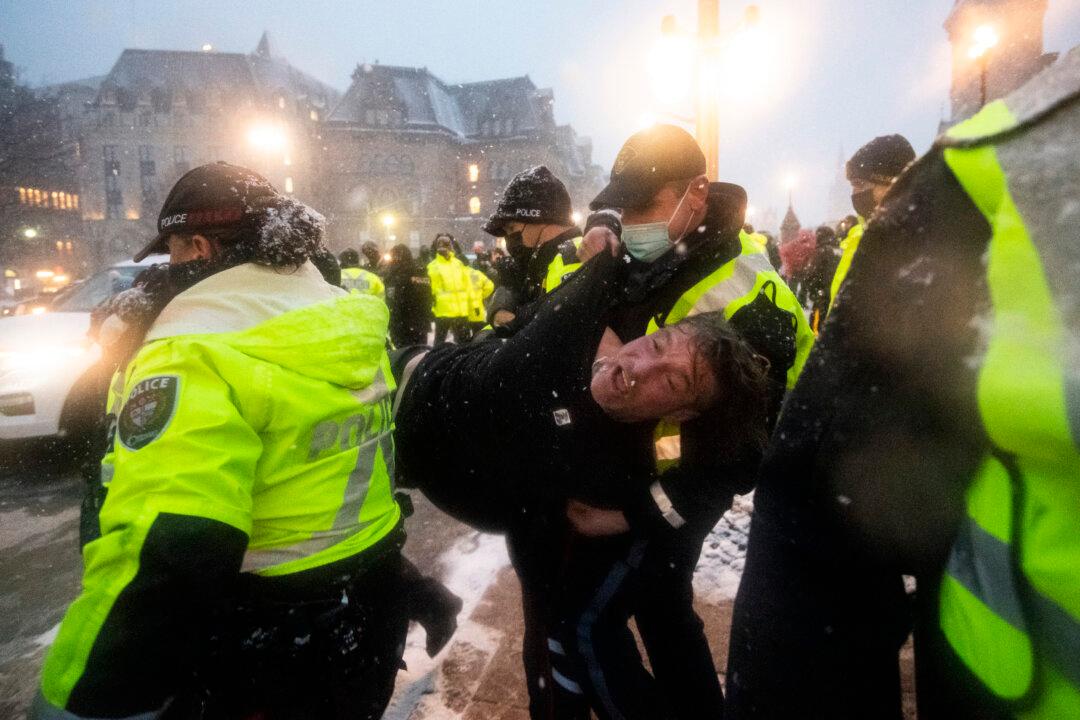A senior officer from the Ontario Provincial Police (OPP) involved in planning the takedown of the Freedom Convoy in Ottawa last winter says that invoking the Emergencies Act was not necessary to clear the protest.
“We had some help with [the provincial declaration of emergency] and the Emergencies Act, but in my humble opinion, we would have reached the same solution with the plan that we had without either of those pieces of legislation,” now-retired Chief Superintendent Carson Pardy told the Public Order Emergency Commission on Oct. 21.





